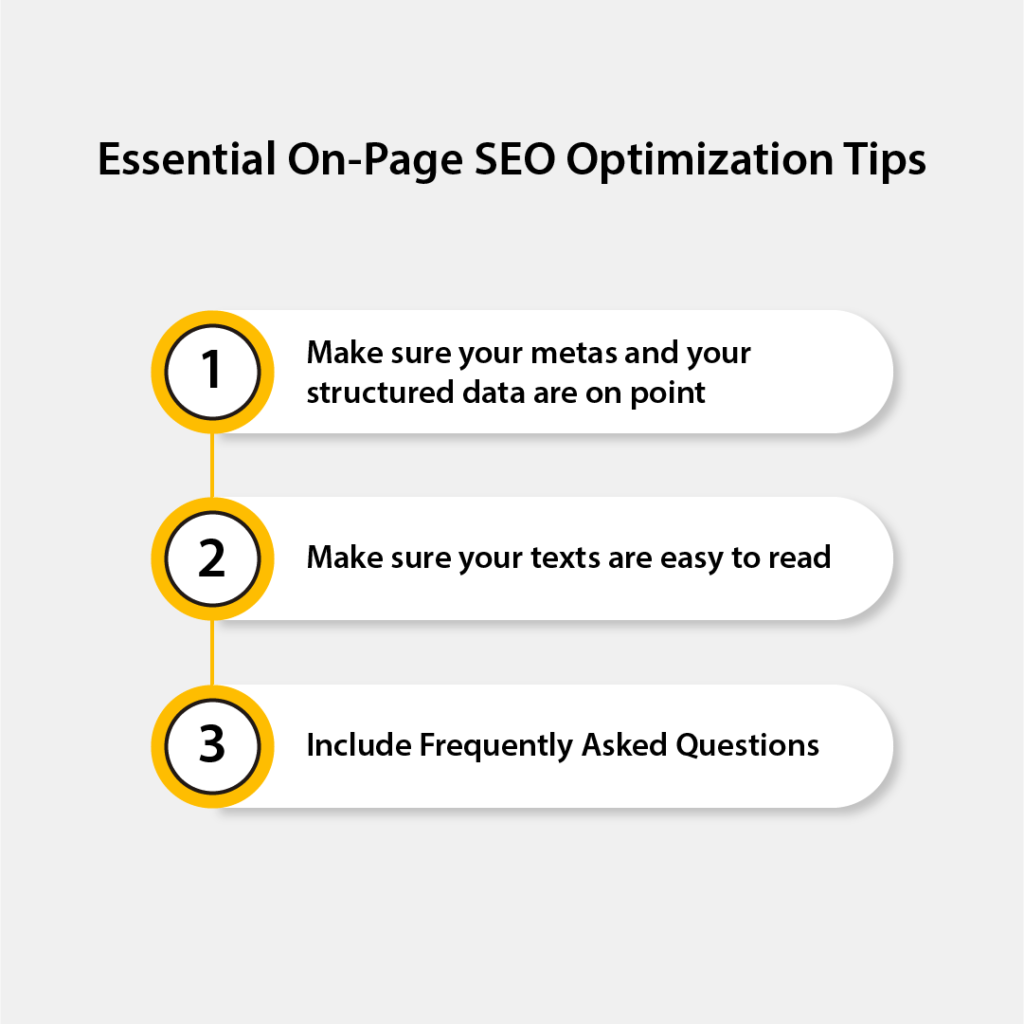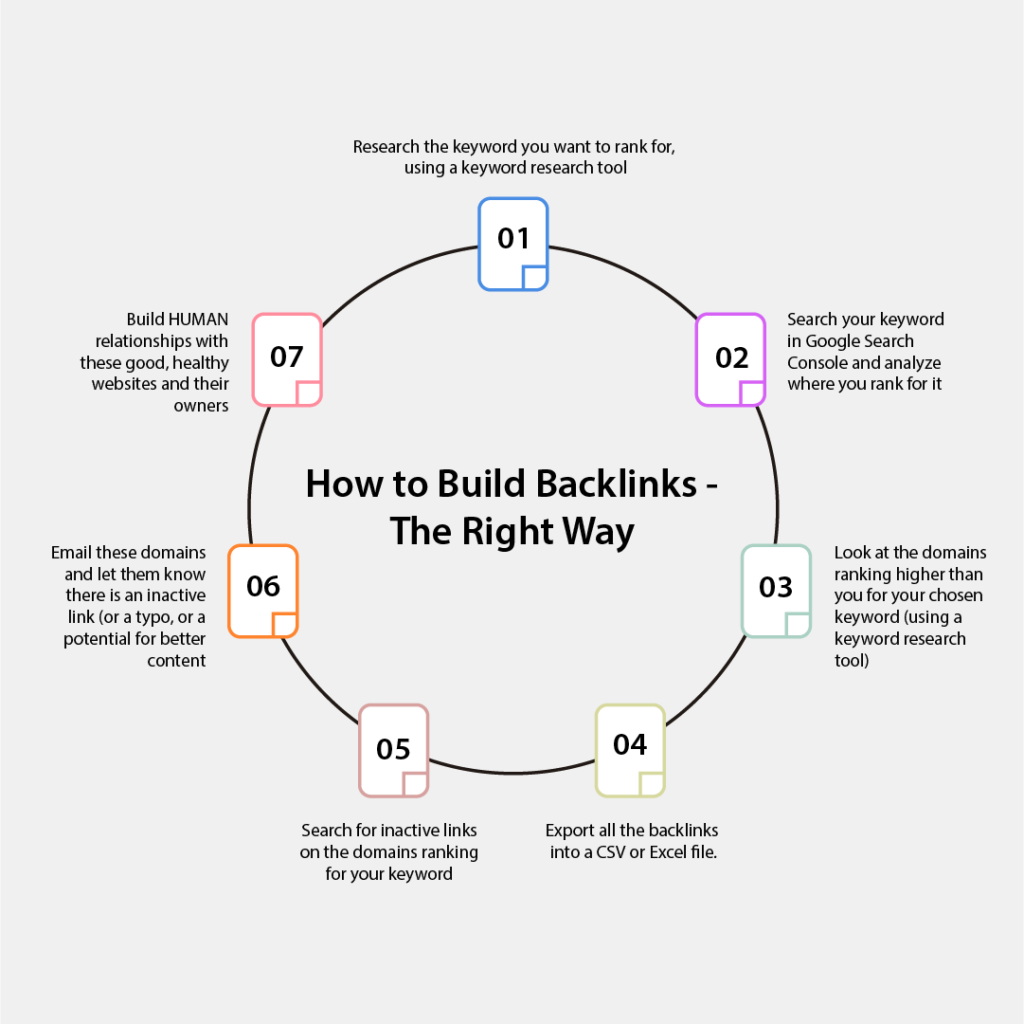
Backlinking is one of those parts of SEO that’s still very much a mystery to most people (including SEO experts with years of experience on their backs). In between buying links and building them, there’s a seemingly infinite array of options – so it’s understandable why you too might feel lost in the sea of backlink strategy options.
No worries, I’m here to help shed some light on this mystery. Is it better to buy links or to build links? And if you choose the latter, how do you actually do it?
Read on to find answers to these questions (and more).
Look, if you are looking for a super-quick answer to this question, then here you go: buying backlinks is not a good option – and, in fact, I strongly believe it shouldn’t be an option at all.
Here’s why buying backlinks is actually bad for you.
If you’ve been in the digital marketing space for a hot minute, you’ve probably been approached by at least one person trying to sell you links. They’ll come to you with a pretty offer, they’ll say they can get your Domain Authority bumped quickly, and they’ll even show a bunch of appealing websites.
It all sounds very nice and attractive, right? You pay $5, $10, $50 and get a backlink for your site – and before you know it, you have a bunch of backlinks, some good DA going on, and your site is ranking high(er) on search engines for keywords you want to rank for.
Except, well, that’s not how SEO works.
To begin with, buying links is very much the same as buying votes in an election. Backlinks work as a “veto” from another website to yours – basically, signalling Google (and other search engines) that your site is worthy of attention, it provides good value for readers/ users, and is not some sort of scam.
When you buy links, you buy votes. Which might sound good in theory, but Google is very much aware of these practices. They know what’s going on in the “dark” trenches of the SEO world, and thus, they have put in place systems ready to determine when shady backlinking techniques are applied.
Even more, they will sooner or later spot the websites selling links and penalize them for it. When they do that, they will also “look” at all the backlinks on those websites – and if yours are among them, you’ll definitely get in trouble too.
Buying backlinks can very easily turn from a win-win situation into a lose-lose one.
If you’re here for a quick trick into how you can win backlinks, I’m here to get it straight right off the bat: that’s now what backlinking is, it’s not what I promote, and it’s not what the best SEO minds in the world do.
Building backlinks is hard and tedious work. It sounds super unexciting and downright terrifying, I know. But there’s no better way to do it, other than the right way. Why? Because that’s how you get real value, real long-term results that are sustainable and genuinely helpful for your business.
OK, so how do you actually do this?
Well, before you even jump into trying to build backlinks, though, you must first think of where you stand right now and what you can do to improve your current ranking without backlinks.
Believe it or not, on-page optimization is so frequently overlooked!
If I had to give you just three essential tips for proper on-page optimization, I’d narrow them down to these:

Your title tags, your meta descriptions, and your page URL can make a world of difference. Your structured data might seem small, but it is extremely important when you want to make sure Google’s crawlers can “read” your pages and “understand” what they’re all about.
One more thing to keep in mind here is this: regardless of whether it's a blog post, if it's a service page, whatever it is, make sure it really responds to the intent of the keyword.
Make your texts comprehensive, easy to read, and easy to digest. It doesn’t matter what you’re talking about – make it easy to understand by humans and search engines will understand them too.
“Help” both human and machine readers get a better understanding of your texts by providing them with infographics, logically-structured content, clear H2s and H3s, make sure you slip your keyword(s) in the introduction and throughout the text.
This is a bit of a newer technique, but I see it used more and more often in the SEO community. I’ve also used it and it actually shows pretty amazing results.
What you need to do to implement this technique is pull some relevant “Frequently Asked Questions” from a keyword research tool, directly from Google, or from tools like Answer the Public. Then, you need to incorporate them in your content as H2s or H3s, and, of course, you need to answer them.
The benefit of doing this is that these FAQs work as long-tail keywords, which you can easily rank for if you optimize specifically for them. Not a lot of people are competing in these long-tail keywords, so you will most likely have a pretty quick win with them. Even more, your page might end up ranking both for your main keyword and for your FAQs.
As I was mentioning earlier in this article, there’s no real, sustainable, and harmless way to “quick links”. There’s only the hard way – and the right way too.
To start building links correctly, you will need two types of tools: a keyword research tool (such as SEMrush, Ahrefs, MOZ, etc.) and Google Search Console. Then, you will need to follow these steps:

If your tool doesn’t show active and inactive links, you can still research them manually (just skim through the links on the page and find your backlink).
Bear in mind that you will most likely get a good chunk of rejections. That’s absolutely normal, and it shouldn’t scare you off. The main goal here is to be consistent with your outreach and to be human in how you do it. People don’t really care if you want a backlink – but if you build genuinely human relationships with them, you will eventually get to a point where you can get good, native links pointing back to your site.
Yes, this does take time. And yes, it is tedious and sometimes it might even feel like In the race between “buying links vs building links”, it’s the “slow” but steady turtle who wins. All the unethical, shady backlinking techniques you might bump into in your SEO journey are just not worth the effort – they might give you temporary wins, but the repercussions will hit harder than you may even realize.
Stick to the clean way of building links for SEO and you’ll win the race!
There are a lot of places where you can buy backlinks online, but you shouldn’t. It’s not a “quick win” strategy, but a “you will definitely lose in the end” one.
There’s no actual price to put on a backlink. Shady backlink building techniques will eventually get your site penalized, so you shouldn’t sell or buy backlinks.
The best way to get inbound links (backlinks) is by building relationships with high domain ranking websites and providing them with genuine value. There’s no workaround when it comes to this – building links is hard, tedious work, but it absolutely pays off in the end.
Simple answer is: you don’t. Doing this will eventually hurt your website because Google penalizes websites that sell links (and this will attract a negative influence on your site too). Plus, most sites that sell backlinks will not contextually relate these links to your business’ activity, which means they won’t even help you get a short “boost” in terms of SEO juice.
Link building is an SEO practice that enables websites to get “vetoed” by other ranking websites for specific keywords. Link building helps you improve your Domain Authority and ranking, exposes your business to new audiences, and helps you build valuable relationships with other sites.
In SEO, backlinks are links that point from one site to another. They act as “votes of confidence” for search engines to know that your site and content are 100% legit, valuable, and useful for readers.